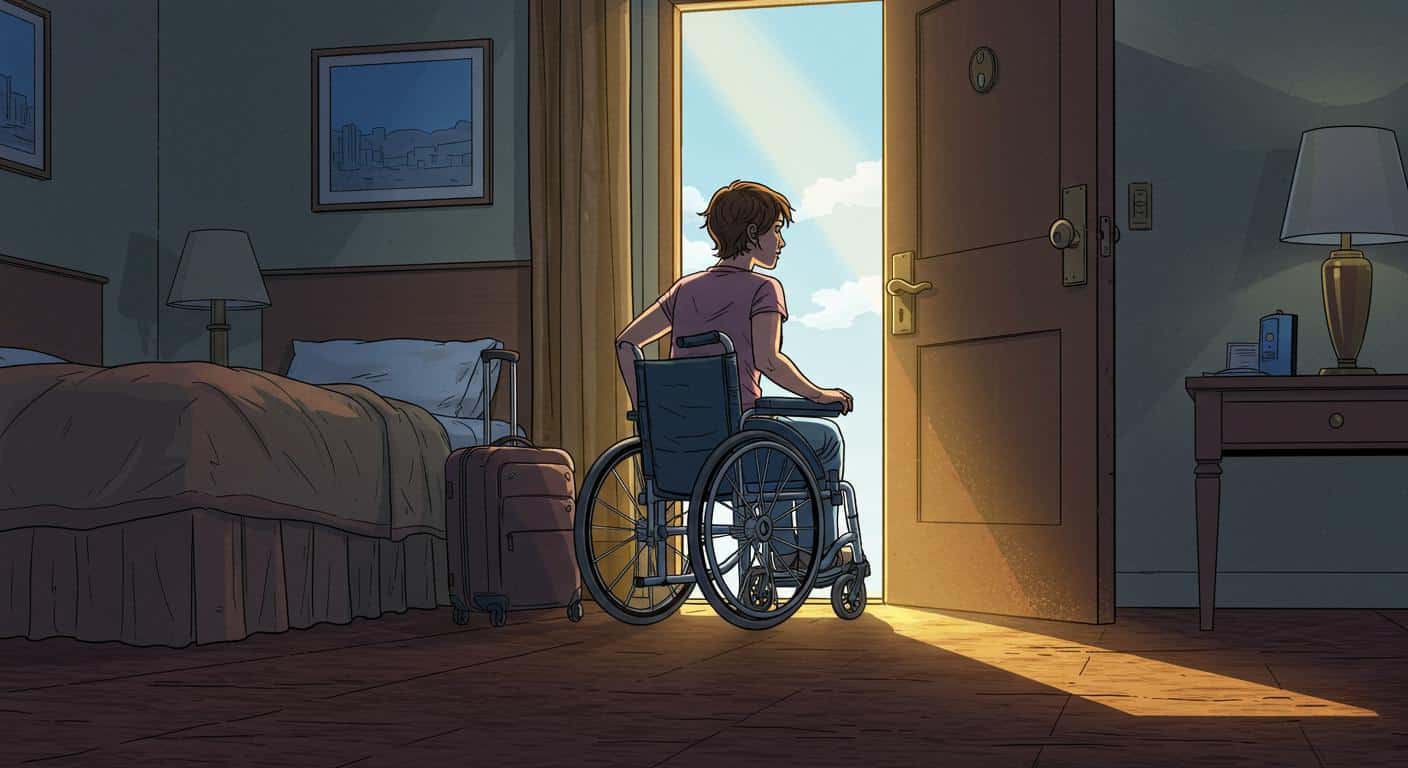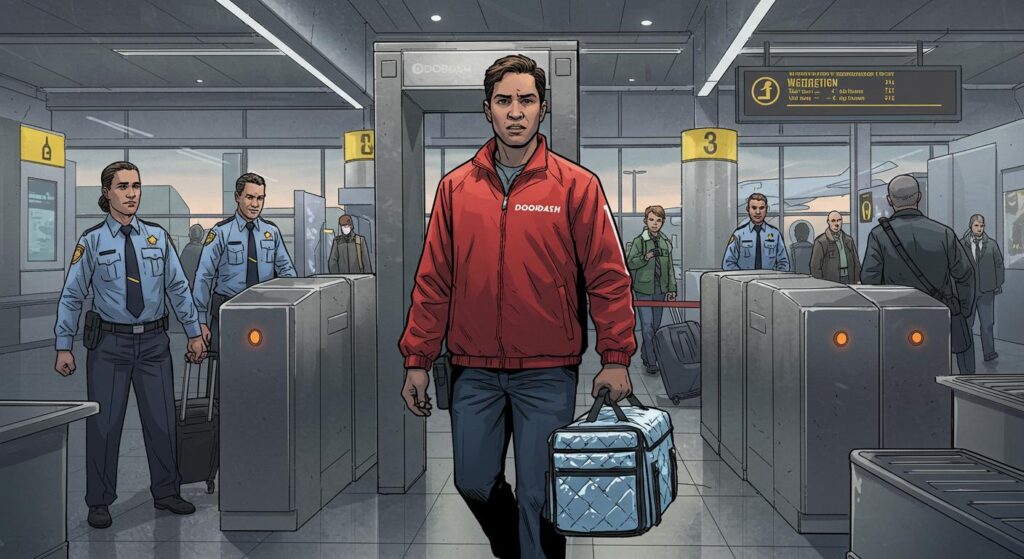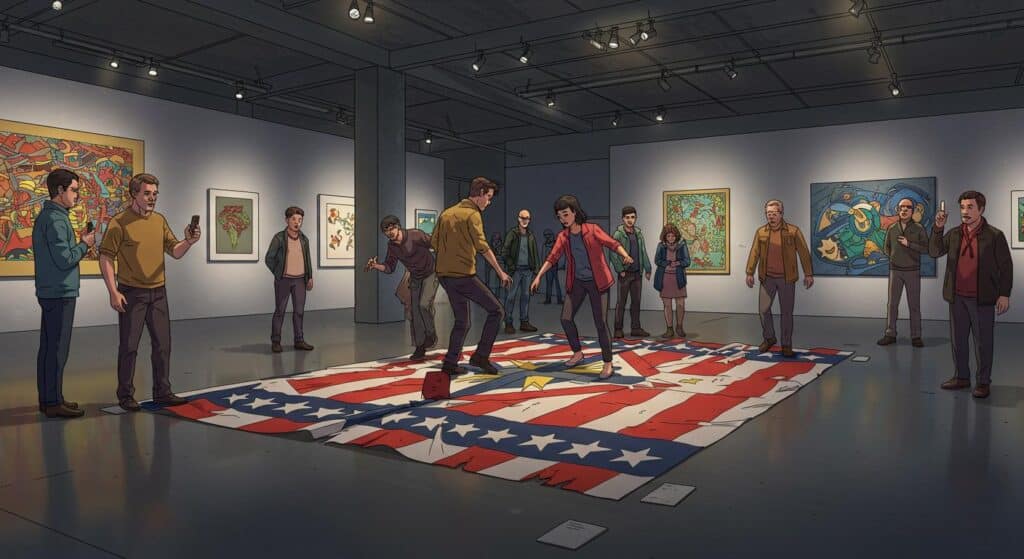Checking into a hotel, most people probably anticipate rough towels or maybe a mysterious stain on the carpet—not a 42-day involuntary stay on the fourth floor. Yet for Joy Patton, whose recent stint at the Woodspring Suites Extended Stay became, quite literally, an endurance trial, that’s exactly what happened. If you wondered whether “hotel prison” was an actual thing, well, the answer is apparently yes—with the key lost somewhere in a locked utility closet marked “Elevator Out of Order.”
The Elevator That Wasn’t
As KTLA reports, Joy Patton—wheelchair user, accidental recluse—found herself unexpectedly trapped when the hotel’s only elevator fizzled out on April 10. Her room: fourth floor, with more stairs than escape options. The last time she’d been outside? The very day the elevator stopped, a date that quickly assumed mythic proportions for Patton as the weeks dragged on.
Repeated attempts by Joy and her husband, Matt, to get information or help went mostly unheeded by hotel staff, according to KTLA’s account. Meanwhile, The Nerd Stash describes how the couple, frustrated by the lack of progress, contacted local news station WAVY in hopes that a little public attention might rattle loose some repairs. It apparently did—but not before the Pattons were allegedly informed their weekly room rate would jump from $600 to over $1,000 after bringing media into the mix. They naturally interpreted this as retaliation.
KTLA attributes an explanation from Sandpiper Hospitality’s president, Jim Darter, who said the rates did not match the Pattons’ claims and had not changed, maintaining that the couple was offered a room on the first floor but declined. That narrative gets a sharp rebuttal from Joy herself, who told KTLA, “We were never offered a first floor,” and added that local management claimed there was simply nothing available—no alternate arrangements, no solution offered. So, two competing realities: one in the elevator logs, another in the everyday lived experience.
The Kafkaesque Side of Accessibility
Consider this detail: a four-story hotel with one elevator, broken for over a month, and a guest who literally can’t exit except by outside intervention. According to KTLA’s interviews and The Nerd Stash’s background on elevator repairs (including a Redditor’s note about technician shortages), there wasn’t exactly a robust contingency plan in play. Was there ever really an intent to accommodate, or just a hope things would sort themselves out? For wheelchair users, “just take the stairs” has all the utility of a parachute in an attic.
WAVY, as cited by KTLA, confronted on-site management about possible first-floor relocation options. An unidentified staff member closed the conversation with, “No comment,” while the general manager responded, “We are working on that.” One is left to wonder what, exactly, was being worked on—given that neither the information nor an accessible room seemed to materialize for six weeks.
Public reaction, as documented by The Nerd Stash through social media and Reddit chatter, was a swirl of exasperation and disbelief. One user wished Joy would “sue the sh** out of that company,” while another observed that elevator repairs are complicated largely due to technician shortages—implying the hotel should have proactively provided a first-floor room, especially for a long-term, mobility-impaired guest. Critiques of the management’s indifference ran rampant; a comment highlighted by the outlet lamented the dismissive “attitude you saw from the on-site manager,” likening resident treatment to an undesirable inconvenience.
Freedom (and Fresh Air) at Last
After 42 days, the repair cavalry finally arrived—according to KTLA, replacement parts were installed and the elevator began running just ahead of the latest predicted schedule. The “best anniversary present we could ever have had,” Joy declared. Her reaction, quoted directly in the KTLA story, is about as clear as sunlight: “I don’t feel like a vampire anymore. I can finally come out in the sun.”
For most of us, “opening a window” is a minor comfort. For Joy, as she told KTLA, it was an empty gesture: “Opening windows is not good enough, you got to get out of the walls because they were closing in on me, and I can breathe now.” Her celebration—arms held high, rolling out the front entrance—feels like something earned rather than merely permitted.
What Counts as Accountability?
A swirl of statements versus actual experience: corporate officials referenced by KTLA insist offers were made and prices stayed consistent; Joy’s version, and her consistent testimony to both outlets, flatly contradicts that. How robust are the hotel’s records, really—and would this scenario have resolved any differently without the high beams of outside attention? The Nerd Stash points out that broader discussion online quickly escalated from dismay to legal suggestions, with many readers openly hoping the Pattons take things to court.
Is this just a rare cascade of bad luck, or is it symptomatic of a model where accessibility is mostly theoretical until someone pushes past the threshold? Mechanical failures are inevitable, but a 42-day wait for the restoration of basic mobility—especially when a ground-floor room might have solved the issue—begs a few questions. If it had been the air conditioning or the WiFi, would the urgency have been greater?
Aftermath at the Hotel (and Beyond)
With the elevator working and Joy outside at last, celebration was warranted—yet lingering doubts remain. Was this a fluke, or are there similar stories untold, quietly shuffled down the hall? Can “we’re working on it” ever sound like anything but a shrug in situations like these? And crucially, how many avoidable hotel “prisons” are papered over with apologies issued only once the spotlight lands? The line between misfortune and mishandling may be blurry, but from Joy Patton’s fourth-floor vantage point, the need for basic access was always rendered in the clearest possible terms.
For once, there’s no supernatural twist, just a demonstration of how the mundane—one broken elevator, a few crossed wires, a lot of waiting—can conspire to make the everyday unexpectedly surreal. The ordeal is over; the questions, and perhaps a touch of skepticism, are likely to linger a whole lot longer.







